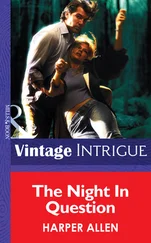Richard Gordon - A QUESTION OF GUILT
Здесь есть возможность читать онлайн «Richard Gordon - A QUESTION OF GUILT» весь текст электронной книги совершенно бесплатно (целиком полную версию без сокращений). В некоторых случаях можно слушать аудио, скачать через торрент в формате fb2 и присутствует краткое содержание. Жанр: Юмористическая проза, на английском языке. Описание произведения, (предисловие) а так же отзывы посетителей доступны на портале библиотеки ЛибКат.
- Название:A QUESTION OF GUILT
- Автор:
- Жанр:
- Год:неизвестен
- ISBN:нет данных
- Рейтинг книги:4 / 5. Голосов: 1
-
Избранное:Добавить в избранное
- Отзывы:
-
Ваша оценка:
- 80
- 1
- 2
- 3
- 4
- 5
A QUESTION OF GUILT: краткое содержание, описание и аннотация
Предлагаем к чтению аннотацию, описание, краткое содержание или предисловие (зависит от того, что написал сам автор книги «A QUESTION OF GUILT»). Если вы не нашли необходимую информацию о книге — напишите в комментариях, мы постараемся отыскать её.
A QUESTION OF GUILT — читать онлайн бесплатно полную книгу (весь текст) целиком
Ниже представлен текст книги, разбитый по страницам. Система сохранения места последней прочитанной страницы, позволяет с удобством читать онлайн бесплатно книгу «A QUESTION OF GUILT», без необходимости каждый раз заново искать на чём Вы остановились. Поставьте закладку, и сможете в любой момент перейти на страницу, на которой закончили чтение.
Интервал:
Закладка:
The room had the easygoing student air of a man with no one to impress. A black iron bed with a bright patchwork quilt stood against one wall, a worn horsehair sofa faced a chintz-covered, wing-backed armchair across a bearskin hearth rug. The bookcase was inadequate, its contents spilling haphazardly on the floor. The concession to decoration was a tawny picture, which a close look interpreted as barges in the Thames estuary at sunrise.
The pair of tall first-floor windows looked on an ill-cut lawn with rusty croquet-hoops, surrounded by thick laurels, berberis and box. The house was one of the squat grey-brick villas, which with turretted and battlemented Gothic dwellings lined the Camden Road. Outside the everlasting clank of electric trams merged with the nightly bellowing and baaing from the vast Metropolitan Cattle Market across the railway lines.
Nancy sat on the sofa in a plain charcoal dress, intently darning Eliot's sock with a wooden mushroom.
'Would you like a slice of Dundee cake? Fresh yesterday from the Aerated Bread Company.'
'Fine.'
Eliot fetched a basin of lump sugar from a tall cupboard containing files, more books, shoes, ties and spare bedding. 'Another tune?'
'I guess my appetite's sated for Offenbach, Strauss and-may I say so?-your Sir Arthur Sullivan. Why not play yourself?'
'The piano is to me an instrument as mysterious as the ouija board,' he apologised. 'I simply enjoy watching the rippling keys as the music unwinds.'
The pianola stood in the corner, the rolls which Eliot hired from the Music Roll Exchange in Oxford Street shared the cupboard. 'My conscience disallows keeping a servant, but I've no objection to hiring a ghost as my musical valet. By the way, there's a couple of fellows coming. Did I mention it?'
Nancy looked up sharply from her darning. 'I don't want to be found here.'
'They find more shocking things in the world to worry them than a chap alone with a girl.'
She put down the sock. 'Do you know the only real disagreeableness of revolutionaries? To be entirely insensitive about the feelings of others.'
Eliot grinned. 'I'm sorry, my dear. But honestly, they'll take no more notice of you than of Emma.'
She was the maid-of-all-work, with crumpled stockings and lank hair, raised in an orphanage. Eliot thought her barely fit to look on the outside of the asylum door. The only other occupant of No 502 Camden Road was Frau Ebert, the German housekeeper. When Nancy asked after the householder, Eliot seemed uneasy and explained that Herr Lamsdorff was a bachelor of utmost respectability from Hamburg, who had paid London the compliment of living there, but was obliged to be often abroad on his business as furrier.
'Don't go,' he implored. 'They're nothing to be frightened of. And we've so little time.'
Nancy was returning to Switzerland the following Wednesday. She was staying only two weeks instead of four. Baby's daily cable to the Savoy the previous Friday had complained of 'feeling a bit cheap.' Nancy at once wired Dr Pasquier. He replied that the temperature was a little raised. There was no cause for concern. Miss Grange was obviously fretting for her sister.
'But I'll be back in London, dearest, sure I will, once Baby's settled,' Nancy promised, as Eliot poured kettle into pot.
He made no reply. He knew the fragility of their friendship. It was like the solid ice bridges which formed across Swiss gullies in winter, and in summer might never have been there.
To Nancy, it was a freakish, unthinkable adventure. Once started, she gave herself to making the most of it. They spent all day and much of the night in each other's company-she insisted primly on leaving for the Savoy at midnight, though he assured her the hotel was worldly enough not to imagine the world full of Cinderellas. Eliot showed her with equal pride Buckingham Palace, St Paul's, and his own ancient hospital of St Bartholomew's in Smithfield. At the Tate Gallery, he had objected angrily to Luke Fildes' _The Doctor._ 'Grossly sentimental,' he exclaimed. 'Look at that miserable working-class couple, cowed while the magician meditates over their unconscious child-they couldn't even afford a bed for the poor thing. Medical care is as much a _right_ of the people as pure drinking water. _That_ doctor clearly hasn't the slightest notion of what's wrong with his patient, anyway.'
Nancy thought the painting lifelike and touching. They did not take tea with Miss Nightingale, but stared across the street at her house in Mayfair.
Nancy found Eliot hardly a pleasure-going young man. He took her to Pinero's Mid-Channel at the St James's Theatre, in the cheap pit when she was accustomed to the front stalls. They had 'dinner from the joint' at small, busy restaurants for eightpence, or tried Appendrodt's German eating-houses, or Slater's tea rooms, or splashed a florin on a dozen oysters at Sweeting's in Cheapside. That Nancy expected anything but a life of unexciting domesticity with him seemed beyond Eliot's contemplation. That she had never been happier, she realised then and for the rest of her life.
'Who exactly are these people coming?' She took her cup of tea. She did not care for tea, but he showed no inclination to buy coffee.
'Political friends of mine. But don't expect wild-eyed men in kulak blouses with whiskers like a burst horsehair sofa and a bomb in their attachй cases. Mr Wince would pass for a prosperous and earnestly churchgoing cheesemonger. Mr Ruston was born upper-middle-class and will die upper-middle-class, a succession as certain in this country as the Crown passing from father to son.'
He sat at the table, stirring his tea, long legs stretched out. 'Fellows like Ruston embrace the proletariat like a wild gipsy mistress. They become horribly bloodthirsty. For their principles, they'd cut their mother's throat or dynamite their grandchildren's nursery. But they'd die before blowing on their tea or drinking their soup from the tip of the spoon. Ruston keeps a cook and would be deeply affronted if anyone hesitated in accepting his cheque. He'd never contemplate taking the five-shilling seaside excursion or living off bread-and-jam. Such people become equally boring to the class they own and the class they ape.'
Nancy smiled. 'You draw an unflattering self-portrait.'
Eliot was surprised. 'I don't find the middle-class distasteful. No more than I find the patient distasteful, rather than his disease. I operate on society intellectually, as I operate on a case. I wouldn't rush the barricades, no more than cut my throat if my patient failed to recover. Damn-!' Gesturing with political fervour, he spilt his tea over his papers. Mopping with a yellow silk handkerchief, he consoled himself, 'The chapter needed rewriting, anyway.'
'Why won't you ever let me read your book?' she complained.
'Wait. A woman who would cuddle a new-born baby would be disgusted by the sight of it being formed in the womb. You're privileged to learn my views from my conversation,' he told her blandly. 'The State has the same duty towards the health of its people as parents towards their infants. If I call my book _The Health of Nations,_ I hope to startle people out of their prejudices like Adam Smith. Though as usual, they'll draw them over their heads like cowls.'
The doorbell jangled. Emma showed up a tall, hollow-cheeked, fair-haired unsmiling man younger than Eliot, in a brown tweed suit with a yellow waistcoat, like a stockbroker off to the races. The other was short and fat, twenty years older, in shiny blue serge, with a pink face, sparse hair, a clipped moustache and steel-rimmed glasses askew a snouty nose. The young man had a fat manilla envelope and an Irish tweed hat, both of which he tossed on the table with an unconcern indicating familiarity with the room. Young Ruston glared aggressively at Nancy. Wince seemed amused. She continued darning the sock. 'Miss Grange is from America,' Eliot introduced her. The name meant nothing to either visitor. 'She is the soul of discretion.'
Читать дальшеИнтервал:
Закладка:
Похожие книги на «A QUESTION OF GUILT»
Представляем Вашему вниманию похожие книги на «A QUESTION OF GUILT» списком для выбора. Мы отобрали схожую по названию и смыслу литературу в надежде предоставить читателям больше вариантов отыскать новые, интересные, ещё непрочитанные произведения.
Обсуждение, отзывы о книге «A QUESTION OF GUILT» и просто собственные мнения читателей. Оставьте ваши комментарии, напишите, что Вы думаете о произведении, его смысле или главных героях. Укажите что конкретно понравилось, а что нет, и почему Вы так считаете.






